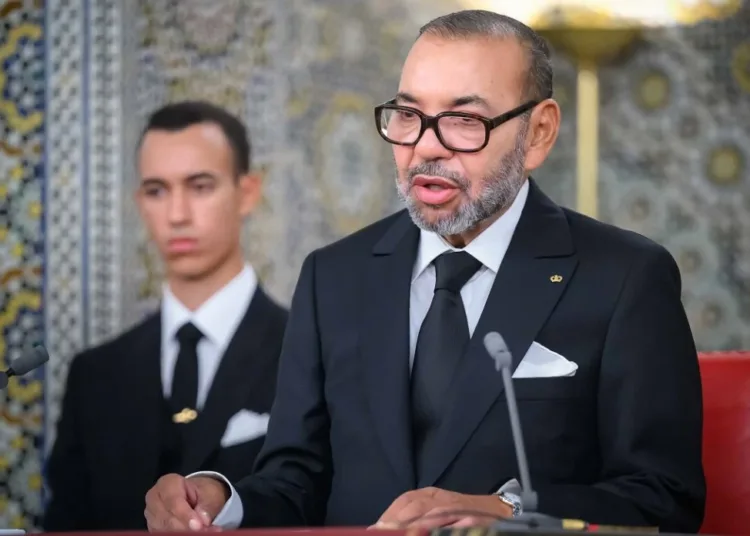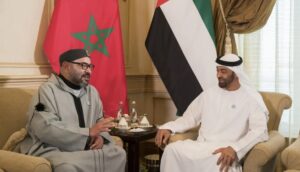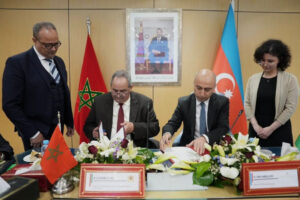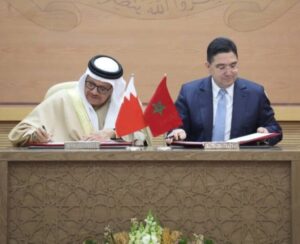King Mohammed VI Vows to Eliminate Regional Disparities, Orders New Territorial Development Model in Throne Day Speech

Marrakech, The Gulf Observer: Marking the 26th anniversary of his accession to the throne, King Mohammed VI of Morocco delivered a nationally broadcast address on Tuesday night in which he reaffirmed his commitment to eradicating regional inequalities and advancing inclusive socioeconomic development for all Moroccans.
“There is no place today or tomorrow for a Morocco moving at two speeds,” the monarch declared, calling for a fundamental shift in the country’s development model to ensure that economic growth tangibly improves the lives of citizens across all regions and social classes.
While highlighting Morocco’s strong economic performance and notable progress in infrastructure, King Mohammed VI emphasized that such achievements remain incomplete without equitable distribution of their benefits. “You know well that I will never be satisfied, regardless of the level of economic development and infrastructure, if it does not contribute tangibly to improving citizens’ living conditions from all social categories and in all regions and areas without discrimination or exclusion,” he said.
Citing the 2024 national population census, the King acknowledged important demographic and spatial changes, noting a reduction in multidimensional poverty from 11.9% in 2014 to 6.8% in 2024. However, he lamented persistent poverty and vulnerability in rural areas due to underdeveloped infrastructure and a lack of basic services.
“This does not align with our vision for today’s Morocco, nor with our efforts to promote social development and achieve territorial justice,” the King stated, urging a shift from traditional social programs toward an integrated, territorially balanced development strategy.
Described by analysts as a landmark address with the tone of a sovereign declaration, the speech called for a break from past models and laid out a structural recalibration of Morocco’s development trajectory—placing territorial equity at the heart of national planning.
The King instructed the government to develop a new generation of territorial development programs grounded in regional specificities, advanced decentralization, and principles of complementarity and solidarity. These programs are to focus on four priority sectors: employment through regional economic potential, education and healthcare service improvements, sustainable water management, and integrated territorial development aligned with national strategic initiatives.
This strategic shift comes amid new findings by Morocco’s High Commission for Planning (HCP), which reported deepening social disparities despite economic growth. A February 2024 study indicated that while poverty levels declined, economic vulnerability—especially in urban areas—has increased, with 4.75 million people classified as economically fragile in 2022. The proportion of vulnerable city dwellers rose sharply to 47.2% in 2022, compared to 36% in 2014, highlighting the erosion of the middle class.
Despite these challenges, Morocco has sustained notable economic performance, surpassing the threshold for the United Nations Human Development Index (HDI) “high human development” category. The Kingdom has more than doubled its industrial exports since 2014, particularly in sectors such as automotive, aerospace, renewable energy, agri-food processing, and tourism.
Legislative Elections to Proceed as Scheduled
In the political segment of his speech, King Mohammed VI reaffirmed that legislative elections will be held on schedule, approximately one year from now, in accordance with constitutional and legal provisions.
“We have given our high instructions to the Minister of Interior for proper preparation of the upcoming legislative elections and to open political consultations with various stakeholders,” the King said, underscoring the need for clarity and stability in the electoral timeline.
He called for the legal and institutional framework governing the elections for the House of Representatives to be finalized before the end of this year. This clarification comes amid recent speculation in Moroccan media regarding potential changes to the electoral calendar.
Official sources have dismissed any plans to alter the schedule, confirming that legislative elections are expected to take place in September 2026, with regional and local elections proceeding independently.
As the political arena begins to mobilize, both ruling coalition and opposition parties are positioning themselves strategically for the upcoming electoral contest. Observers note that the National Rally of Independents (RNI) is expected to lead efforts to retain its leading position.
However, some political commentators have voiced concern that political discourse has shifted toward electoral tactics at the expense of policy substance, arguing that many parties now act more as electoral machines than platforms for meaningful governance.
King Mohammed VI’s Throne Day address is being widely interpreted as a call for renewed national purpose—anchored in inclusive development, territorial justice, and institutional integrity.


